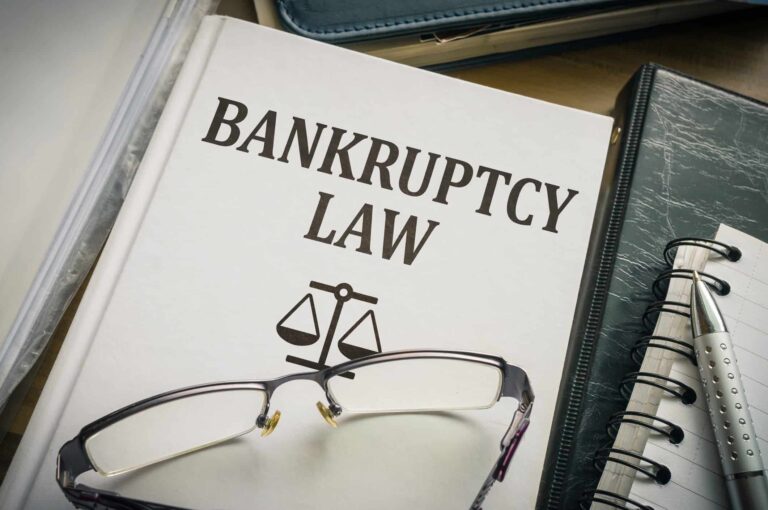Which Types of Bankruptcy Do I Qualify For?

If you’re facing impossible debts and are unable to repay creditors, it can feel like a hopeless situation. However, filing for bankruptcy can give you the fresh start you need when experiencing financial difficulties. It’s important that you choose the right type of bankruptcy for your circumstance to get the most benefits from this often difficult decision.
For those who are considering filing for bankruptcy, you may have several questions. What are the different types of bankruptcy? What type of bankruptcy is best for me? To help, our Las Vegas bankruptcy attorneys explain what you need to know.
Need debt relief? Contact our bankruptcy attorneys today. Request a consultation now.
Understanding the Types of Bankruptcy Options
Depending on who is filing for bankruptcy and the reasons for filing, the law allows several bankruptcy proceedings to help those in debt, including:
- Chapter 7 – Individuals
- Chapter 9 – Municipalities
- Chapter 10 – Corporate bankruptcy replaced by Chapter 11
- Chapter 11 – Business reorganization
- Chapter 12 – Family farms and fisheries
- Chapter 13 – Individuals
- Chapter 15 – Cross-border bankruptcy cases
Individuals filing for bankruptcy will generally decide between Chapter 7 and Chapter 13. Although Chapter 7 filing is the most common type of bankruptcy, Chapter 13 bankruptcy can actually be a better option for some people. So, which is best — Chapter 7 or Chapter 13 bankruptcy? Here’s a breakdown of each one.
Chapter 7 Bankruptcy
Filing for Chapter 7 bankruptcy is available to qualifying individuals and couples in debt. This option is typically best for those who have few to no assets and are hoping to have unsecured debts discharged, which is debt that is not backed by collateral or tied to an asset. Examples of unsecured debt include:
- Credit card debt
- Medical bills
- Personal loans
- Utility bills
After Chapter 7 filings, the bankruptcy courts appoint trustees who sell the debtor’s assets as a way to pay back some debts.
Chapter 13 Bankruptcy
Individuals with a good, steady income who do not qualify for Chapter 7 can file for Chapter 13. This type of bankruptcy creates Chapter 13 repayment plans that allow debtors to make reasonable installment payments over a period of a few years. As a result of being able to repay their debts, the bankruptcy courts allow debtors who file for Chapter 13 to keep their assets.
Chapter 13 bankruptcy may be the better option for people who plan to pay debts and want to keep their assets and valuable property from being liquidated, including their homes and vehicles. However, you must meet these Chapter 13 requirements:
- Debt limits
- Income requirements
- Personal filing status (individual or sole proprietor)
Questions to Ask Yourself When Determining Which Type of Bankruptcy Is Right

When determining which type of bankruptcy filing is right for you, here are some questions you should ask yourself. Your answers can help guide you to the best choice and a successful outcome.
1. What is my income amount?
Your income will be a major determining factor for which bankruptcy you file. While Chapter 7 will be the way to go for many individuals, some people make too much income to qualify for Chapter 7. In order to file Chapter 7, you must demonstrate that your disposable income is insufficient to repay your debts. If the courts determine that those with higher incomes are able to repay portions of their debts, they’ll be required to file Chapter 13.
2. Will I be able to afford the monthly payments?
In Chapter 13 bankruptcy, the debtor must make monthly payments to their trustee according to their repayment plan, who then pays the creditors. If you’re able to make payments based on your income, Chapter 13 may be the way to go.
However, you may still need to make payments if you file for Chapter 7 bankruptcy. While unsecured debts are discharged, you must continue making payments for alimony, child support, and other financial commitments.
3. What are the types of debts that I need discharged?
If you have a difficult financial situation and want a clean slate, it’s essential to understand which debts can be discharged when filing for bankruptcy. In Chapter 7 bankruptcy, unsecured debts, including credit card debt, are disposed of. Secured debt that is connected to collateral can also be discharged. However, the debtors will be unable to keep the assets in these cases. For example, if you reaffirm your debt but fail to make mortgage payments, you may lose your home in the process.
If you want to make payments to get back on track, Chapter 13 is likely your best option. You will have a chance to make up payments through a payment plan to keep your secured debts. After completing your Chapter 13 repayment plan, the remaining nonpriority unsecured debt amount will typically be discharged.
In both Chapter 7 and Chapter 13 filings, priority unsecured debts must still be paid, including child support and alimony payments.
4. Will I need to keep my car that I have a car loan on?
If you’re filing bankruptcy but have a car you want to keep, you may want to consider Chapter 13. Filing Chapter 13 allows you to keep your assets while making regular payments to your creditors. If you file Chapter 7, there’s a good chance you will lose your car if you’re behind on your car loan payments. The lender can repossess your vehicle if your loan is outdated.
5. What if I have tax debts?
If your income tax debt is more than three years old, Chapter 7 bankruptcy allows you to dispose of your tax debt. Alternatively, you can file Chapter 13, which gives you a chance to repay your tax debt over a period of up to five years. Just keep in mind that tax debt will be calculated into your repayment plan when filing for Chapter 13 bankruptcy.
6. Is there a possibility that I will have to file for bankruptcy again?
While nobody plans to file for bankruptcy multiple times, it does happen. Some people need additional help to get back on their feet. If there’s any chance you will need a bankruptcy filing again, you should know there are limits to how often you can file.
- Chapter 7 – Every eight years
- Chapter 13 – Every two years
You are only able to file Chapter 7 bankruptcy every eight years, which could be challenging to wait that long if you’re having financial difficulties. Chapter 13 bankruptcy allows you to file again in two years as long as your original filing is complete.
7. Do all types of bankruptcies affect my credit equally?
While all bankruptcies will have an initial negative impact on your credit score, Chapter 7 and Chapter 13 remain on your report for differing amounts of time. A Chapter 7 filing remains on your credit report and impacts your score for 10 years. Chapter 13 bankruptcy affects your credit score and report for seven years. Both filing types could make it harder to get a loan with favorable interest rates or even get approved at all until enough time has passed to show responsible credit use.
How do I know which bankruptcy is right for me?

Choosing the right form of bankruptcy will give you the most relief and set you up for success moving forward. If you need guidance and support from one of the best bankruptcy law firms in Las Vegas, the experienced bankruptcy attorney team at DeLuca & Associates is ready to help. Contact us to schedule a free consultation and learn more about your bankruptcy options.
Sources:
Fernando, J. (24 February 2021). Unsecured Debt. Investopedia.
Nicks, C. Tax Debts in Chapter 13 Bankruptcy. Nolo.
O’Neill, C. Types of Creditor Claims in Bankruptcy: Secured, Unsecured & Priority. Nolo.
Secured vs Unsecured Debt in Chapter 7 Bankruptcy. TheBankruptcySite.org.






